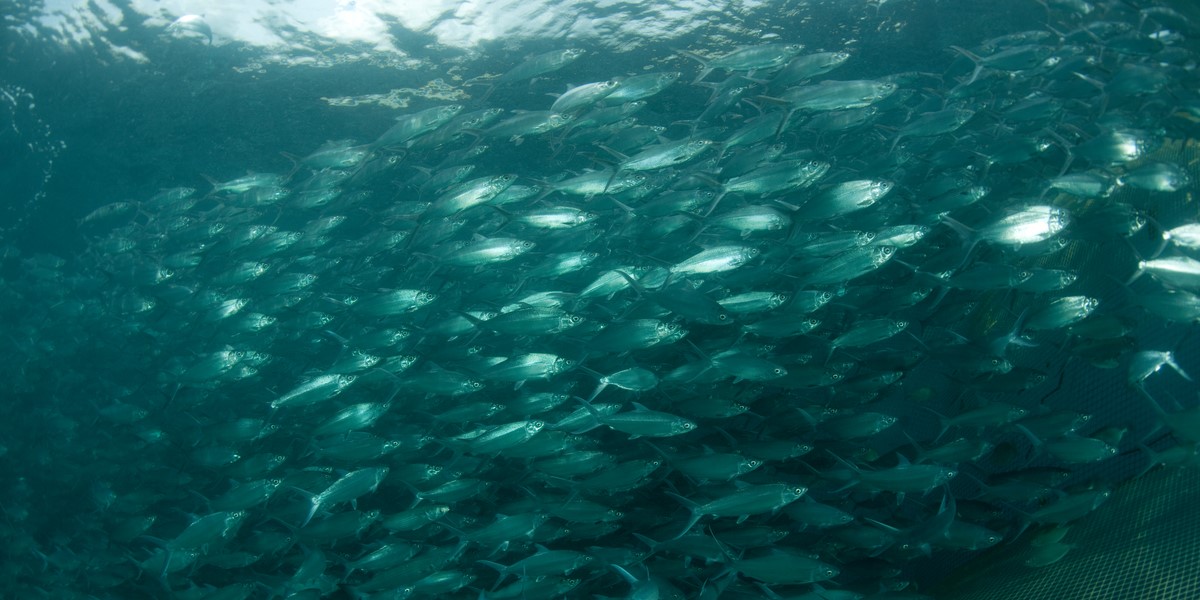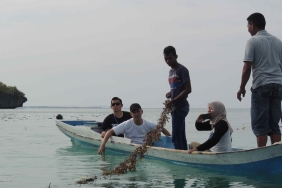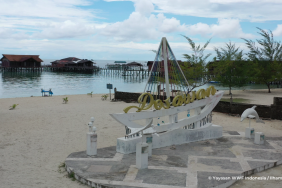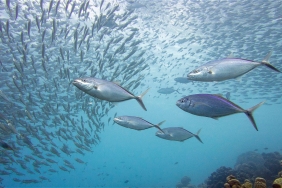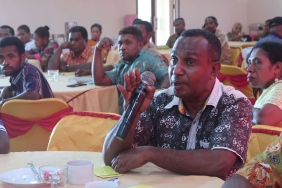WWF SUPPORTS THE END OF TRAWLING FOR SUSTAINABLE FISHERIES AND NATIONAL SEAFOOD SECURITY
By: Ciptanti Putri
Since morning, Jakarta's Car Free Day (CFD) area on Sunday (1/2) was plagued by gray clouds and drizzling raindrops. However, these conditions did not dampen the spirit of a number of people wearing white and white shirts with various marine-themed attributes to conduct a long march in the capital's vehicle-free area. Yes, they were voicing their concern and calling out against the use of trawling in fishing practices on the high seas.
"Currently, the Indonesian government still allows around 600 trawlers to operate in the Arafura Sea, not to mention the number of illegal fishing vessels that utilize the resources there. This is too many compared to other countries such as Australia, which only allows 50 vessels in an area almost three times the size of the Arafura Sea. The chaotic management of trawlers and the complexity of the types of vessels from large to small that are registered throughout Indonesia's seas require government assertiveness to realize sustainable fisheries practices," said Wawan Ridwan, Director of Coral Triangle WWF-Indonesia, who joined the action that morning.
He continued, in addition to the impact on marine biodiversity, especially coral reefs, the use of giant trawl nets is clearly a threat to marine food security because this tool is not selective and tends to have a large fishing capacity. overfishing).
Starting from the front area of Hotel Le Meriden Jakarta, the group consisting of the board of directors and staff of WWF-Indonesia, a number of employees of the Ministry of Maritime Affairs and Fisheries of the Republic of Indonesia, as well as WWF Supporters and a number of communities concerned with the conservation movement started the action right at 07.00 WIB. Accompanied by the sound of recycled drums played by The Rombenks group, the masses moved down Jalan Jenderal Sudirman while shouting yells and calls to care about the issue of the dangers of trawling for national seafood security.
"Indonesia's natural marine wealth, including coral reefs, is threatened if over-exploitation is not immediately controlled. The threat is not only to the disruption of ecosystems and extinction of marine species, but also to Indonesia's food security, especially coastal communities that depend on marine products. There are about 120 million people whose lives directly or indirectly depend on marine products in the world's Coral Triangle region, which includes the Philippines, Timor Leste, Papua New Guinea, Solomon Islands, Malaysia, and Indonesia, 70 percent of whose marine territory is included in this area, "said Arnold Sitompul, Director of Conservation WWF-Indonesia in response to the issue of giant net trawling.
As if to mourn and cry for the natural conditions that are increasingly vulnerable due to human actions that do not care about the preservation of nature, suddenly it rained with high intensity when the mass reached the Dukuh Atas flyover, so that some people had to pull over and take shelter at the bus stop. Nevertheless, the sound of drumming continued and the group of people who had equipped themselves with umbrellas and raincoats continued to move to the area in front of Menara BCA.
The enthusiasm of the masses in the long march that day was highly appreciated by Devy Suradji, Marketing Director of WWF-Indonesia. "Being a WWF Supporter is not just about donations. However, it also supports WWF's conservation efforts. This can be seen from the criticality of WWF Supporters towards environmental issues and their curiosity towards sustainable efforts. WWF Supporters and the public are not all aware of the dangers of unsustainable trawling. Meanwhile, large-sized trawlers are increasingly entering sensitive habitats in Indonesia's deep waters. That's what WWF is addressing through this movement."
The ban on the use of trawlers has been regulated by the Government through KP Regulation No. 2/2015. However, there is still a group of people who carry out the practice and Indonesia itself is one of the few countries that is still rampant in the use of giant trawlers.

